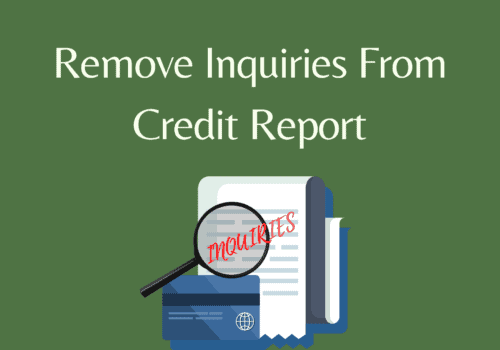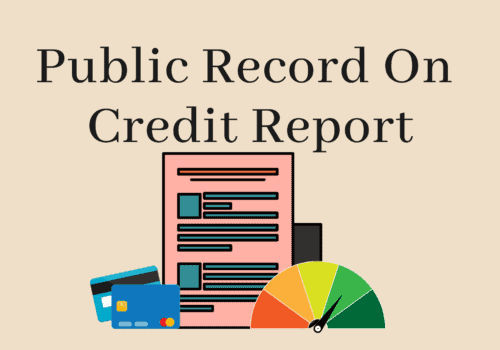Building an excellent credit score is what typically takes time, patience, and good financial habits but it’s not as hard as you might think and it won’t even take ages for you to achieve it. But there’s the need for some planning and insight into it to achieve and maintain an excellent credit score. And well, it’s important to have one to be able to borrow easily and pay less in return. Read on to find out how it works.
What Is A Credit Score And Why Is It Important?
In case you don’t know, a credit score range is 300-850, which is used to measure a customer’s creditworthiness. It is a way by which the lender has an overview of the customer’s ability to borrow and repay a loan.
The credit score lets them know whether the customer will be able to repay and in which way the repayment should be structured to be on the safe side in case of a loss. The higher the credit score the better status you have in the eyes of potential lenders. The credit score greatly affects how the lenders might respond to the borrower. An excellent credit score supports the borrower by having to pay less interest, having a longer repayment period, and other benefits.
How Does Credit Scores Work?
There are various methods of calculating a credit score but the most commonly used by most financial institutions is the one fixed by Fair Isaac Corporation, FICO. The credit score is based on a scale that ranges from 300 – 850.
Poor Credit Score Range: 300 to 579
Fair Credit Score Range: 580 to 669
Good Credit Score Range: 670 to 739
Very Good Credit Score Range: 740 to 799
Excellent or Ideal Credit Score Range: 800 to 850
The person is given a number between 300-850 that depicts their financial capability of repaying a borrowed amount on time and with the least hassle for the lender.
A person with a credit score below 600 is considered a subprime borrower and is less preferred by a lender. Even after being able to borrow, he might end up paying more interest.
A score from 600 to 699 is considered the national average and most of the people fall under this category. It’s an okay phase but not the best credit report if you’re looking for a good financial reputation.
A person with a score above 700 is considered a good customer for lending and is usually preferred by lenders. A person falling in this category can get loans easily with lesser interest rates and more time for repayment.
A score above 800 is considered excellent. You get the best services and rates. This is the best score to aim for if you want the best services to be provided to you.
This means that a higher credit score ends up making you pay less for the same amount that one might borrow with a lower credit score.
The credit score is constantly checked by the lenders to know whether to change the interest rates or credit limit of a credit card.
How Credit Scores Are Calculated?
Experian, Equifax, and Transunion are the three main credit reporting agencies in the US and 4 credit bureaus in India – TransUnion CIBIL, Equifax, Experian and CRIF Highmark. that report and update the credit reports of a customer. The basis on which the reports are calculated is mainly the few characteristic factors mentioned.
- Payment history
This accounts for almost 35% of all reports. If you were on time with your payments or you were lagging, that’s greatly affecting your credit score.
- Total amount owed
It accounts for about 30% of the report. Whether the amount you own is more than the debt you have or vice versa.
- Length of credit history
This accounts for about 15% of the report and is based on how long your accounts have been open and the transactions occurred.
- Types of credit
Accounting for 10% of the report shows if the person has a mix of different credits.
- New credit
10% of the report consists of the types of credit accounts you’ve opened and applied for and in what period.
Recommended: Best Credit Cards
How To Improve A Credit Score? How Long Does It Take?
As already mentioned, it’s not that hard to change a credit score. To improve it, it might only take anywhere from four to six months with practical strategy and some good financial habits. Here are some of the ways by which a credit score can be improved.
1. Get A Credit Builder Loan
If you opt for this loan then the lender will deposit the amount into a savings account and you repay the loan along with the interest. You don’t have access to the money unless you pay it all off. After you pay the loan, the lender provides you with the money along with the interests earned from it. This builds up an excellent credit history for you as to when you pay the loan this is also being reported to the credit bureaus by the lender.
2. Get A Secured Credit Card
This is the type of credit card you get if you are not eligible for any other or simply when you are trying to build an excellent credit score. In this kind of credit card, you pay an amount initially which acts as collateral for the lender.
If the card is managed wisely, an unsecured credit card might also be issued by the lender on request. The credit card balances and payment history is reported to the bureaus every once in a while. Thus, every time you make a payment it helps increase your score.
3. Increase Your Credit Line
Try to get a credit increase on your credit card but be sure to not use this up. Try maintaining a low credit utilization rate. In this way, you’ll have a lesser percentage of utilization which will eventually help you in increasing your credit score.
4. Pay Bills On Time
Your payment history for a minimum of six months should be on time. The main goal should be to make all the payments on time so that the report shows you being able to manage and pay off all the bills on time.
5. Become An Authorised User On A Credit Card
An authorized user on someone else’s card is the person who might not have their credit card but can use the one on which they are authorized just like the actual owner of the card without having any legal responsibility for the card.
Just that the card should itself have a good history and balance with on-time payments. You can have the benefits of using their card but you don’t need to do so. You just have to make sure that your activities are being timely reported to the credit bureaus. This can help you build an excellent credit score.
6. Pay Off Instalment Loans
Simply applying for a loan and paying it off in instalments can help you increase your credit score only if you can pay off your instalments on time. Make sure to get only as much as you can safely payback on time and also not to take a loan which you probably don’t need just to increase the score.
7. Know How The Scoring Works
Knowing the structure and how the scoring works can help you build an excellent score. Knowing where you need to work more and which mistakes have to be avoided might help you from getting your scores reduced unknowingly.
8. Don’t Close A Credit Card Account
If you’re thinking of closing a credit account then it’s better not to do it if you’re looking to improve your credit score, this is because you can distribute your credit over these accounts which will help you maintain a low credit score over both the accounts thus helping you raise the score.
9. See If Non-Credit Bill Payments Count Toward Your Credit History
Check whether you paying off bills like utility payments and rents count towards your credit history and if it does then make sure to pay those off on time as they might help you to build an excellent credit score as well. If these aren’t being counted then you can consider going for credit reporting systems that’ll easily process your payment and also report it to the credit bureaus.
10. Work With Credit Repair Companies
The credit repayment companies are those which negotiate with the creditors and credit agencies on your behalf. They help you build your credit score for a monthly fee.
Also Read: Top 10 International Banks in India
How To Maintain An Excellent Credit Score? What To Avoid?
It’s really important to have an excellent credit report as it can affect how the lenders deal with you and can help you in the long run when you might want loans for things like a house or a car. It is much easier to decrease a credit score than to increase it. It takes much less time to go down on your report due to some simple bad habits.
1. Pay Your Bills On-time
Never miss a payment as a bad payment history can affect your credit score. Don’t get late to pay your bills. If you carry a balance then make sure to pay more than the minimum due. This will help you pay faster, keeps you free from debt, and also helps you with an excellent score in your credit reports.
2. Don’t Close Any Credit Card Accounts
Don’t have any of your credit accounts closed unless you’re paying a fee for it, these can be used to distribute your credit over it and it also gives you a longer credit history. It’s always better to have a longer credit history as it directly affects your scores. The longer scores indicate a better transaction history and more dealings thus making you a trusted customer.
3. Have An Eye On Your Credit Report
You can get a copy of your credit report from the three bureaus and you can try to get familiar with it by getting the copy. This makes you understand your scores a bit more.
4. Don’t Use Too Much Of Your Credit
When you do have a credit card make sure that you use less than 30% of it as a credit higher than that can hurt your score.
5. Don’t Apply For Lots Of Credit Cards
If you apply for a new credit card then there’s a hard inquiry before issuing you one. This kind of inquiry can lead to a decrease in a credit score temporarily. This will also show that you’re desperate to get credit thus affecting your score badly as the credit bureaus keep an eye on how many times you’ve applied for credit cards and such.
6. Only Use Your Credit Cards For Things That You Can Afford
The credit card should be used to a minimum and only for the things that you can afford, it’s considered a good financial habit to take as little credit as possible overall and as long as your credit score is concerned, having a high credit score indicates that you’re able to afford the things you require and can pay off your debt on time thus making you a good customer in the eyes of potential lenders.
Final Thoughts
Thus, having an excellent credit score and being able to maintain it can affect the way you’ll be financially supported by lenders in the future. It’s totally up to the borrower how he maintains his credit reports and his financial habits to achieve an excellent credit score.
As you have seen, it’s not impossible to gain an excellent credit score in less time but it takes effort and planning. The faster you want your credit scores to increase the more methods you have to try. Even though it might take some time for you, it’s worth the effort as there’s nothing to lose in it. It just ensures you with a better financial position and a better possibility in the future.
Frequently Asked Questions
Will Checking My Credit Score Often Reduce It?
Yes, that’s why experts suggest checking your credit score just once in a year. However, the credit score will be checked many times when you are applying for a loan.
Will Choosing A Credit Card Reduce My Score?
If you have zero balance outstanding on a previous credit card, choosing another credit card will not reduce your score.
Do Late Payments And Faster Use Of Credit Limits Have A Negative Impact On The Score?
Yes, that’s why, pay on time and do not spend your complete credit limit.
How Many Personal Loans Can Affect Your Credit Score?
There is no fixed number, but the more loans you take, the more impact it will have on your credit score.
How To Find Out Your Credit Score?
Only do so through the official credit score issue bureau in your country. Do not fall for scam emails that claim to provide your credit score within a few seconds.




